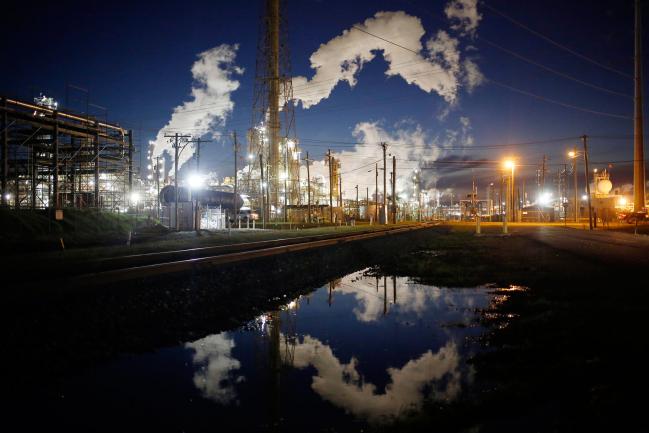(Bloomberg) -- Oil closed at the highest level in more than two years as OPEC’s two biggest members publicly endorsed an extension of production caps that have eroded a worldwide glut.
Futures rose by 0.4 percent in New York to the highest settlement since July 2015. Oil chiefs from Saudi Arabia and Iraq expressed confidence the historic accord between OPEC and other major crude suppliers that has trimmed stockpiles will be extended beyond its March expiration. Saudi Arabia and Iraq together account for almost half of the barrels OPEC produces.
There is growing optimism among investors about the longevity of the OPEC-led agreement, Michael Lynch, president of Strategic Energy & Economic Research in Winchester, Massachusetts, said by telephone. “We are seeing more balanced markets than we’ve had since 2014.”
Oil has climbed more than 15 percent since the beginning of September on signs that global supplies are tightening and the Organization of Petroleum Exporting Countries and allied producers may extend their efforts. In the U.S., crude stockpiles slid to the lowest level since January 2016 last week, according to an Energy Information Administration report on Wednesday.
Saudi Oil Minister Khalid Al-Falih said in Bangkok that he expects “improving market conditions to continue, and as my colleagues in OPEC and non-OPEC gather in four weeks in Vienna, I expect that we will renew our resolve to return already improving global inventories to their normal levels.”
Iraq Oil Minister Jabbar al-Luaibi told reporters in Baghdad that it backs any OPEC decision to help support oil prices. Meanwhile, Kuwait also expects an extension to be formalized at the Nov. 30 gathering, said Issam Almarzooq, the nation’s oil minister.
West Texas Intermediate for December delivery rose 24 cents to settle at $54.54 a barrel on the New York Mercantile Exchange after switching between gains and losses during the session. Total volume traded was about 26 percent below the 100-day average.
“There’s a little bit of questioning of the cohesion that’s there, although the Saudis keep at it with their rhetoric,” John Kilduff, a partner at Again Capital LLC, a New York-based hedge fund, said by telephone.
See: Big Oil’s Surprisingly Strong Quarter Explained in Five Charts
Brent for January settlement added 13 cents to end the session at $60.62 on the London-based ICE Futures Europe exchange. The global benchmark crude traded at a premium of $5.85 to January WTI.
“Getting as much visibility about the future cuts is going to be key,” Mark Watkins, a Park City, Utah-based regional investment manager at U.S. Bank Wealth Management, which oversees $142 billion in assets, said by telephone.
Oil-market news:
- OPEC shipments will climb to 24.17 million barrels a day in the four weeks to Nov. 18 versus the period to Oct. 21, tanker-tracker Oil Movements said in a weekly report.
- Royal Dutch Shell (LON:RDSa) Plc released third-quarter earnings Thursday that beat expectations and showed the European major has taken Exxon Mobil Corp (NYSE:XOM).’s cash-flow crown, a year after completing the biggest deal in its history.
- OPEC output slid by 180,000 barrels a day in October from September, with overall production dipping to 32.59 million barrels a day, according to a Bloomberg survey of analysts, oil companies and ship-tracking data.
